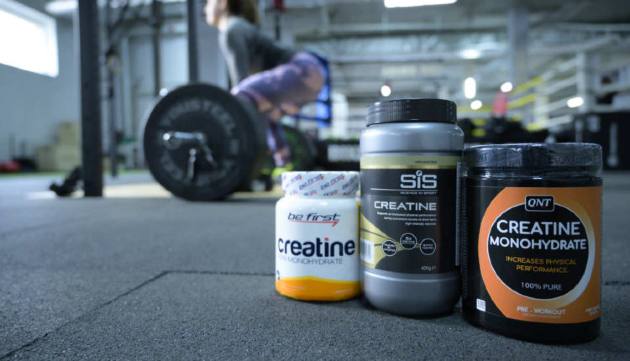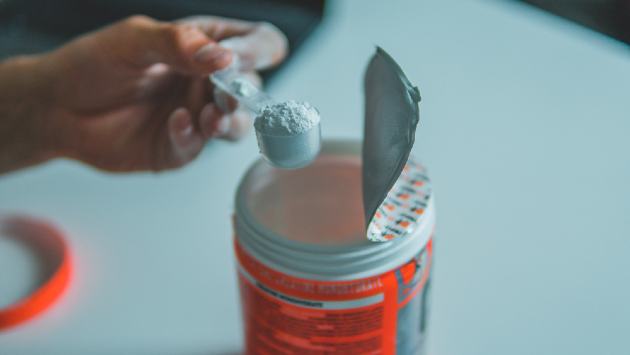Creatine Supplements: The Ideal Way to Boost Exercise Performance
Supplements play an important function in your physical, mental, and emotional well-being. They can fill the nutritional gap in your diet and promise to improve your overall health. Many people consider taking supplements when they are experiencing stress or sleeping poorly. Additionally, supplements can boost your energy levels and improve your gym results. If you exercise regularly, you know that physical activity helps to improve muscle strength and boost your endurance during exercise, hence improving your gym performance and daily life. Therefore, you likely want to be sure you are getting the most out of it. Getting the right supplements in addition to a healthy balanced diet will support your training and help you meet your needs. There are plenty of supplements out there that are available in the form of pills, capsules, powders, gel capsules and tablets, extracts, or liquids. However, you will need to choose the right supplement for you, the one that will correspond with your diet and workout schedule.
As you may have heard, creatine is the number-one supplement for better workouts and gym performance. It has been shown that creatine can increase muscle mass, strength, and exercise performance in addition to providing other health benefits, such as protecting against neurological disease. Some believe that it’s not safe to take creatine as it has many side effects, but this is not supported by evidence yet. Before we get into what creatine does, how is used, and its side effects, you should keep in mind that creatine or any other supplements for that matter are no substitute for your body’s basic needs such as getting adequate sleep, eating a healthy diet, staying hydrated, and exercising regularly.

What is Creatine?
Creatine is a molecule that is naturally produced in your body, stored as phosphocreatine primarily in your muscles. Creatine monohydrate is a small compound consisting of amino acids, therefore it is a protein and not a steroid. It provides energy, athletic performance, and increase muscle mass. This muscular boost helps you get through a few more reps in a workout, boosts your power output as well as increases water retention in your muscles. Many athletes use creatin supplements to enhance performance and achieve bursts of strength. And part of the popularity of creatin supplements is their accessibility. You will find creatine powder, tablets, energy bars, and drink mixes available without a doctor’s prescription at the drug stores, supermarkets, nutrition stores, and over the Internet. However, you must consult with a healthcare provider before taking these supplements.
Health and Performance Benefits
Supplementing with creatine will provide you with powerful benefits for both athletic performance and health. Essentially, creatine supplements offer benefits regardless of your current fitness level. Creatine ensures an uninterrupted source of energy and that’s why it is crucial during any muscle activity. Let’s take a look at some of the benefits of taking creatine supplementation.
Improve Athletic Performance
Creatine supplements are quite popular among gym-goers and athletes involved in high-intensity intermittent activities that require a rapid recovery during training and competition. It is believed to improve exercise performance, help athletes adjust to rigorous training schedules as well as boost post-exercise recovery. Creatine can help prevent muscle cramping and injuries during exercise as well as reduce dehydration, thus leading to enhanced athletic performance.

Gain Muscle Strength
Probably the best-known benefit of taking creatine supplementation is protein synthesis or increasing growth of lean muscle mass. Creatine has a direct effect on the production of called adenosine triphosphate or ATP, a substance on which your muscles rely. Taking creatine supplements will allow an athlete to do more work during reps or sprints, leading to greater gains in strength, muscle mass, and performance. It is particularly helpful when coupled with muscle strengthening exercises.
May Help Manage Neurodegenerative Disorders
Creatine may reduce some symptoms of neurodegenerative diseases, such as Parkinson’s disease and muscular dystrophies, by improving muscle strength and function. Those with Parkinson’s often weight train in an attempt to treat the loss of muscle function and strength. Certain studies have shown that combining creatine with weight training can improve their strength and daily function to a great extent.
Improve Brain Function
Some studies suggest that creatine has positive effects on brain function and overall neurological health. Besides the muscles, your brain relies on ATP as well. The brain produces a certain amount of ATP when completing difficult tasks, so creatine supplements can aid in that production by increasing phosphocreatine stores in your brain. Creatine supplementation provides your brain with additional energy, hence improving your memory and intelligence.

Safety and Side Effects
Though some think that creatine supplementation can have many side effects, several studies demonstrate that creatine is safe for healthy individuals over both short and long-term periods without causing any undesirable side effects. The International Society of Sports Nutrition (ISSN) suggests that taking creatine up to 30 grams per day for five years is generally safe and well-tolerated by healthy individuals. To maximize exercise performance, it’s recommended to take the supplement in a loading dose of 20 grams daily for 5–7 days and a maintenance dose of 2-3g for maintaining the increased creatine levels in muscles.
Though rare, taking creatine may lead to gastrointestinal issues such as nausea, vomiting, and diarrhea. Supplementing with creatine may also cause uncontrolled weight gain and an increased risk of kidney dysfunction. However, these claims are not supported by evidence and their possible occurrence is usually related to creatine overdose. Overall, creatine is safe when taken at recommended dosages. As always, you need to consult and get a nod from your doctor before taking creatine or any nutritional supplements to support your training.



